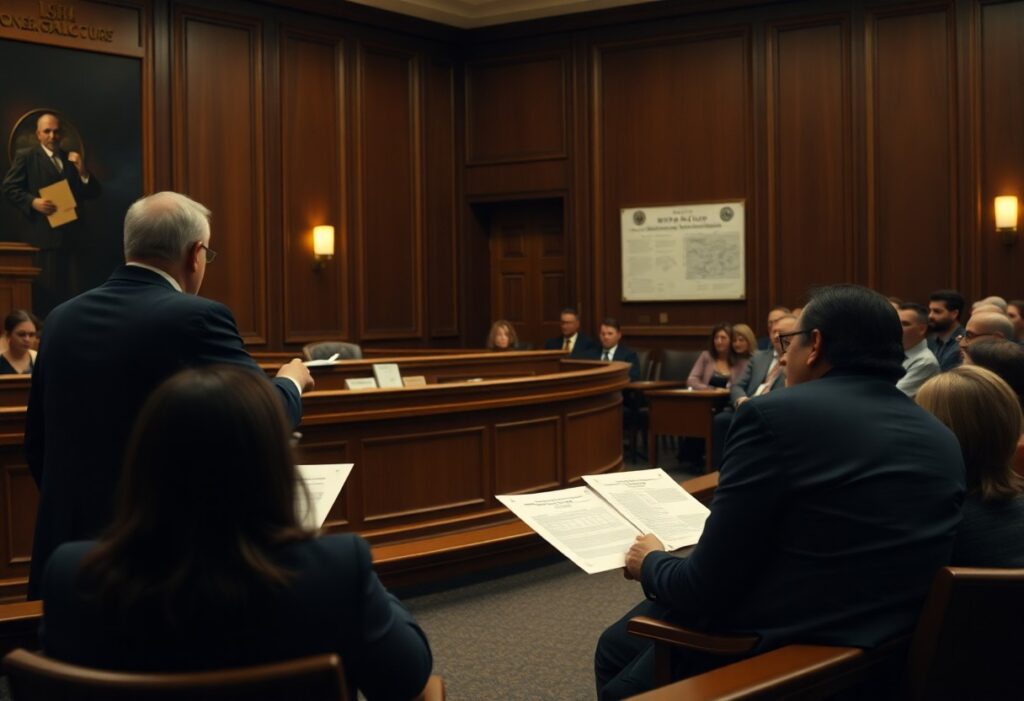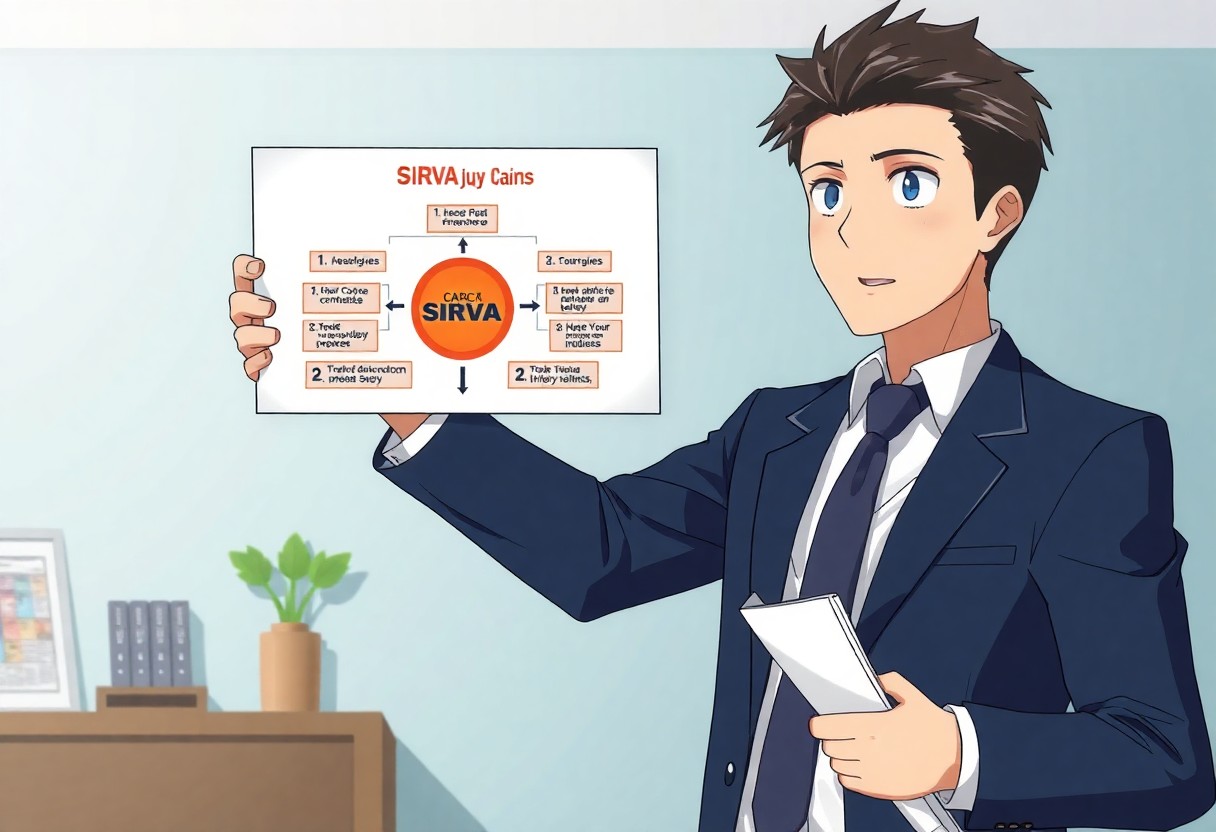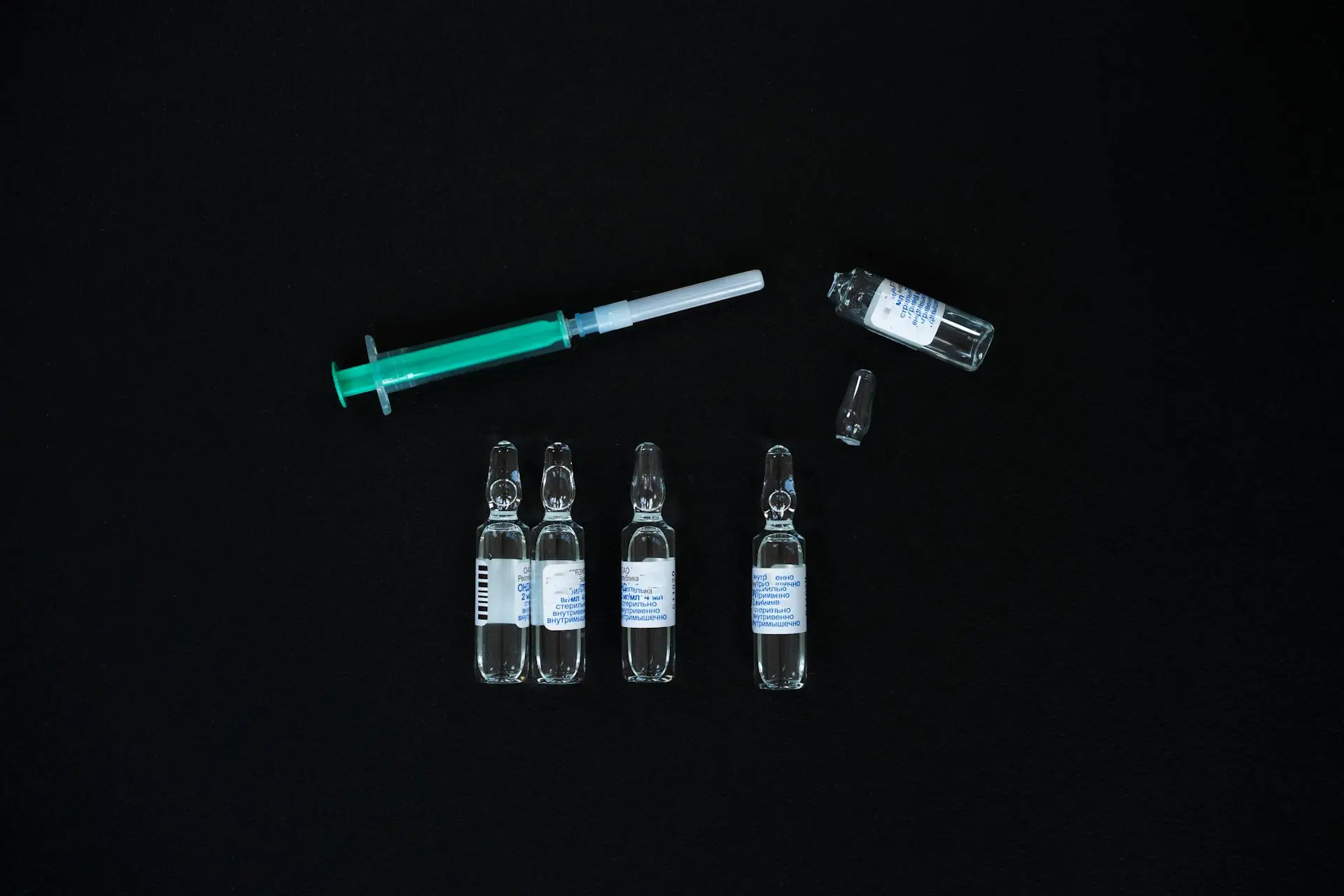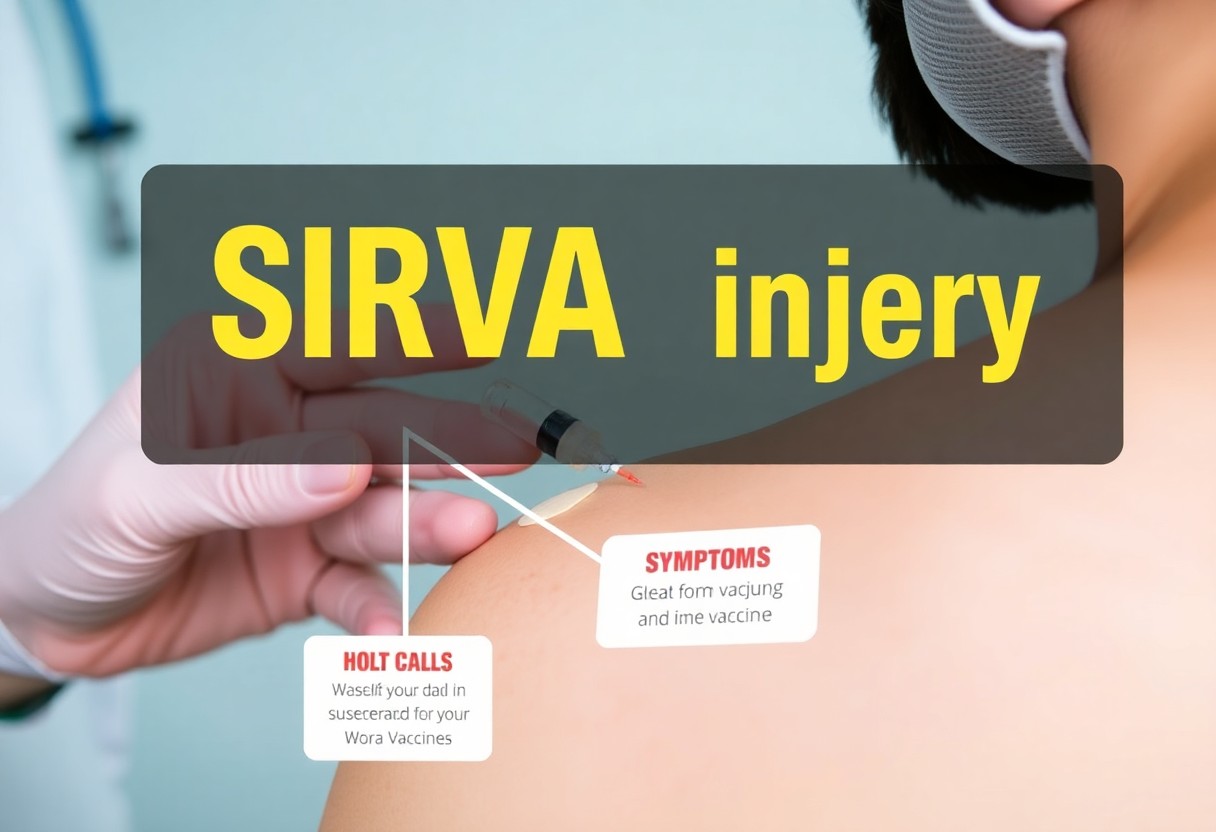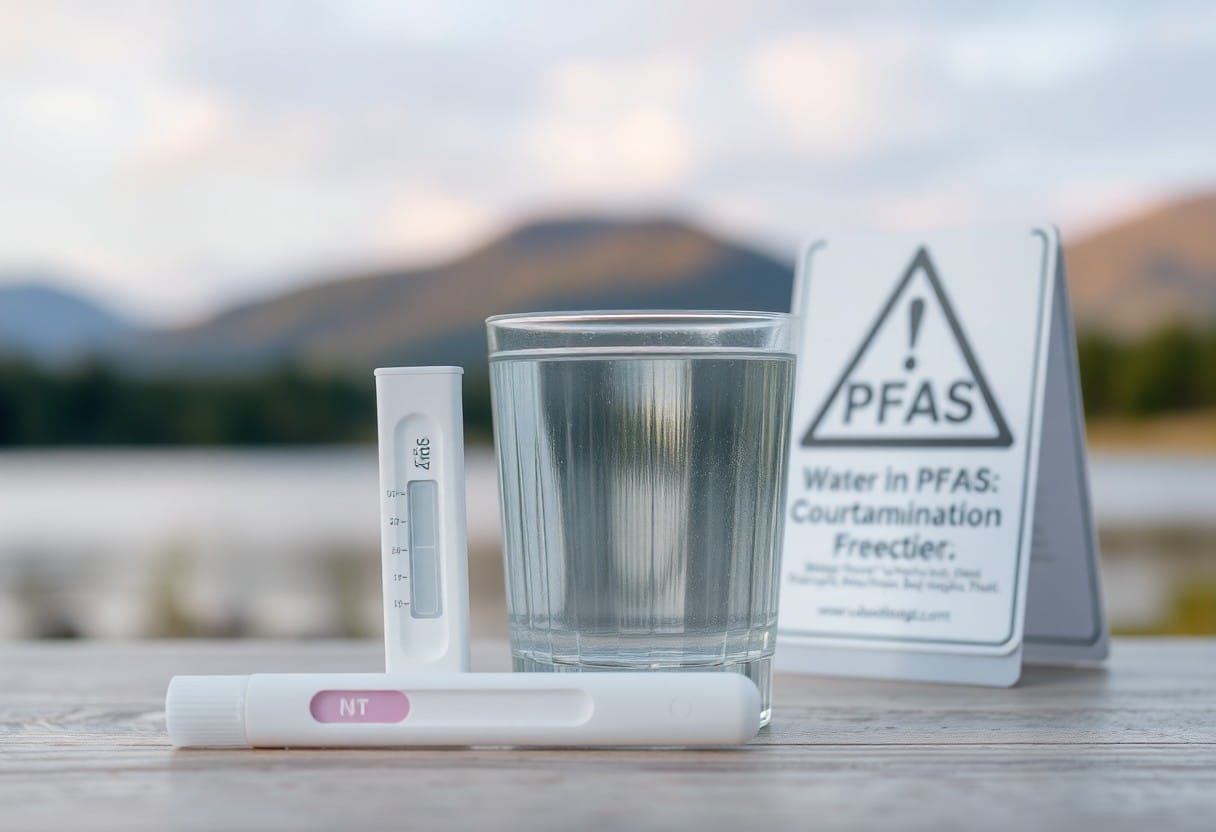Most people are unaware of SIRVA (Shoulder Injury Related to Vaccine Administration), a condition that can arise from improper vaccine administration. If you have experienced shoulder pain or dysfunction following a vaccination, you may be eligible for legal recourse. This blog post will guide you through five necessary points that you need to understand regarding SIRVA injury lawsuits. By grasping these key concepts, you can better navigate the complexities of your situation and make informed decisions regarding your health and legal options.
What is SIRVA?
A SIRVA, or Shoulder Injury Related to Vaccine Administration, refers to a specific type of shoulder injury that occurs when a vaccine is improperly administered—often due to an incorrect injection site or technique. This injury can lead to significant pain and long-term mobility issues, impacting your daily life and overall health. Understanding SIRVA is imperative as it can arise from various vaccinations, making awareness important for prevention and legal claims.
Definition of SIRVA
On a medical level, SIRVA is characterized by shoulder pain and dysfunction that arises directly from improper vaccine administration. This condition is typically associated with inflammation, impingement, or injury to the shoulder structures, triggered by factors like the injection being too high or too deep during vaccination.
Common Causes of SIRVA
Across the healthcare landscape, common causes of SIRVA include improper vaccination techniques such as injecting into the deltoid muscle at incorrect angles or depths and failing to identify the anatomical landmarks accurately. These mistakes can result in direct damage to the shoulder joint and surrounding tissues.
Hence, being aware of these common causes can aid you in both prevention and understanding your rights if you find yourself a victim of SIRVA. Many individuals report their injuries stem from vaccinations administered while standing or in non-standard positions, which can compromise the precision required for a safe injection. Appropriate training and awareness for both healthcare providers and patients can mitigate these risks significantly.
Symptoms and Diagnosis of SIRVA
Clearly, SIRVA, or Shoulder Injury Related to Vaccine Administration, presents distinct symptoms that can significantly impact your daily life. You may experience pain, stiffness, weakness, and limited range of motion in your shoulder following vaccination. These symptoms can develop shortly after vaccine administration and may persist, requiring a thorough evaluation to determine their cause and appropriate treatment.
Identifying Symptoms
Beside the common symptoms mentioned, you should also be vigilant for pain that radiates down your arm or tenderness at the injection site. If you find it challenging to perform everyday tasks, like lifting objects or reaching overhead, this may indicate a SIRVA injury. Tracking your symptoms can aid in discussions with healthcare providers.
Medical Diagnosis and Evaluation
Beside understanding your symptoms, obtaining a proper medical diagnosis is vital for your treatment and recovery. Your healthcare provider will take a detailed history, conduct a physical examination, and may order imaging studies to evaluate the shoulder joint and surrounding tissues.
Indeed, medical diagnosis and evaluation for SIRVA require a comprehensive approach. After your initial consultation, the physician may recommend tests such as X-rays or MRI scans to rule out other potential causes of your shoulder pain. Based on the findings, a tailored treatment plan, which may include physical therapy or corticosteroid injections, can be developed to alleviate your symptoms and restore your shoulder function.
Legal Grounds for SIRVA Injury Lawsuits
Any individual seeking to file a SIRVA injury lawsuit must understand the legal parameters that guide these claims. It’s necessary to establish that a healthcare provider acted negligently in administering a vaccination, leading to your shoulder injury. By doing so, you strengthen your case and increase the likelihood of a favorable outcome.
Establishing Negligence
SIRVA injuries often require you to demonstrate that the administering healthcare professional deviated from the standard of care expected in such situations. This might involve showing that proper procedures were not followed or that the injector lacked sufficient training, all of which can significantly influence your case.
Types of Compensation Available
After you’ve built a strong case for your SIRVA injury, it’s important to identify the types of compensation you might be eligible for. Compensation can range from medical expenses to lost wages, and understanding these elements can help you navigate your lawsuit more effectively.
| Type of Compensation | Description |
|---|---|
| Medical Expenses | Coverage for current and future medical treatment related to the injury. |
| Lost Wages | Compensation for income lost due to your inability to work. |
| Pain and Suffering | Compensation for physical pain and emotional distress experienced. |
| Rehabilitation Costs | Expenses related to physical therapy and other rehabilitation services. |
| Punitive Damages | Additional compensation intended to deter the healthcare provider from future negligence. |
And as you assess your situation, you should consider additional factors that may impact your compensation. Each type can address specific needs resulting from the injury, so it’s vital to evaluate how they apply to your unique case. Consulting a qualified attorney can help clarify these options.
| Factor | Impact on Compensation |
|---|---|
| Severity of Injury | More severe injuries generally lead to higher compensation. |
| Duration of Recovery | Longer recovery times can result in increased compensation claims. |
| Impact on Quality of Life | Negative effects on daily activities can justify higher payouts. |
| Documentation of Expenses | Thorough records can help validate your compensation claims. |
| Legal Representation | Having a skilled attorney can enhance your chances of getting adequate compensation. |
Knowing your rights and the possible compensations can empower you during this journey.
The Process of Filing a SIRVA Lawsuit
Despite the complexities involved, filing a SIRVA lawsuit can be a manageable process with the right knowledge and preparation. You will need to gather evidence, establish a clear link between the vaccination and your injury, and adhere to specific legal protocols. Engaging an experienced attorney in this field will facilitate the process and improve your chances of a favorable outcome, ensuring your rights are protected throughout.
Steps to Take
About filing a SIRVA lawsuit, the initial step is to compile all relevant medical documentation and evidence detailing your condition. Next, consult with a knowledgeable attorney who specializes in vaccine injury cases, as they will guide you in assessing the merits of your case. After confirming your claim’s viability, your attorney will prepare and file the necessary legal documentation to initiate the lawsuit.
Timelines to Consider
Between gathering evidence and filing your claim, understanding the timelines associated with a SIRVA lawsuit is necessary to ensure you meet all relevant deadlines. Each state has its own statute of limitations for personal injury claims, providing a specific timeframe within which you must file your lawsuit. Failing to adhere to these timelines could result in losing your right to seek compensation.
Lawsuit timelines can also include pre-filing phases, such as consultation and negotiation, which may take weeks or months. After filing, the discovery process may extend several months as both parties gather more evidence and prepare for trial. Typically, the entire process may take one to two years or longer, depending on the specifics of your case and the court’s schedule. Working closely with your attorney will help you navigate these timelines effectively, ensuring all critical steps are completed in a timely manner.
Common Defenses Against SIRVA Claims
For individuals pursuing SIRVA claims, understanding the common defenses that can arise is important. Defendants may argue that the injury was not caused by the vaccination or that your claims lack sufficient medical evidence. By being aware of these potential defenses, you can better prepare your case and strengthen your argument against them.
Employer Defenses
On the employer side, they may contend that proper vaccination protocols were followed and that you were made aware of the risks involved. They might also argue that your injury was pre-existing or the result of other external factors unrelated to the workplace vaccination.
Other Legal Defenses
Before initiating a SIRVA claim, be aware that other legal defenses may come into play. Defendants could argue lack of jurisdiction, expiration of the statute of limitations, or even present a challenge based on the specifics of informed consent.
Another important aspect of other legal defenses is how they can be grounded in technicalities of law and procedural issues. Defendants might also assert that your claim was improperly filed or insufficiently documented, questioning the validity of your case. Understanding these nuances can significantly influence your approach to the lawsuit and guide you in collecting necessary evidence and documentation to counter these defenses effectively.
To wrap up
Taking this into account, understanding SIRVA injury lawsuits involves recognizing their specific characteristics, the importance of timely filing, and the need for proper medical documentation. You should be aware of potential challenges in your case, as well as the various avenues for compensation available to you. By staying informed about these five key aspects, you empower yourself to navigate the legal landscape effectively and advocate for your rights should you find yourself affected by a SIRVA injury.


